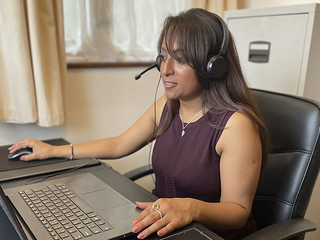Myelodysplastic syndromes (MDS) psychological impact
Myelodysplastic syndromes (MDS): sadness and hopelessness
It is natural and normal for people to experience feelings of intense sadness at times when they are ill. Sometimes it can feel that things aren’t going well or that they will never be the same again. Some days people can feel very down, but usually these feelings are temporary and people tend to say that they have ‘good days and bad days’.
However, when people feel persistently sad and hopeless for two weeks or more – and when these feelings are combined with a lack of interest or pleasure in life, disrupted sleep and appetite, feeling worthless, and thinking they would be better off dead, this is not sadness, but depression.
To some extent, sadness, low mood and clinical depression sit along a continuum. At one end, sadness tends to be an appropriate response to a specific situation, which fluctuates and gradually diminishes over time. In the middle, people can have ‘down days’ or ‘feel blue’. At the other end of the spectrum, depression (often called clinical depression) is more severe and persistent, and it affects the whole of a person’s life and stops them from functioning.
Dwelling on negative thoughts is one of the things that makes low mood much worse and keeps it going. Often the thoughts are self-critical and hopeless in nature; they are nearly always ‘black and white’ or catastrophic. It can be hard to ‘see’ or believe anything positive about life, but all too easy to notice and believe negative things. As with the other emotions, writing down negative thoughts and trying to change them can be helpful, as well as talking things through with others. This helps people to gain some perspective and to feel less hopeless.
The other thing that helps depression is doing more and engaging with others. This helps to increase a sense of pleasure and reward from life.
Coping strategies:
- Activate yourself as much as possible; do more, rather than less. Take gentle exercise and don’t stay in bed or on the sofa.
- Connect with other people.
- Consciously plan and schedule activities, social time and pleasurable things.
- Try to ‘capture’ negative thoughts and come up with more helpful and balanced thoughts.
- Remember to ask yourself: “Is this a fact or an opinion?”; “What’s the evidence?”; “Is there another way of seeing this?”; “What would I say to my best friend or partner if they thought this?”
It is often helpful to seek support if you are sad or low in mood, but it is essential to do so if you are depressed, especially if you are having suicidal thoughts. If you are feeling depressed, talk to your GP and to your healthcare team so that they can organise formal support for you. Talking therapies can help, and medication if necessary.

Worried about anything or have questions?
If you have any questions, worries, or just need someone to talk to, please don't hesitate to contact our Support Service by phone or email.
